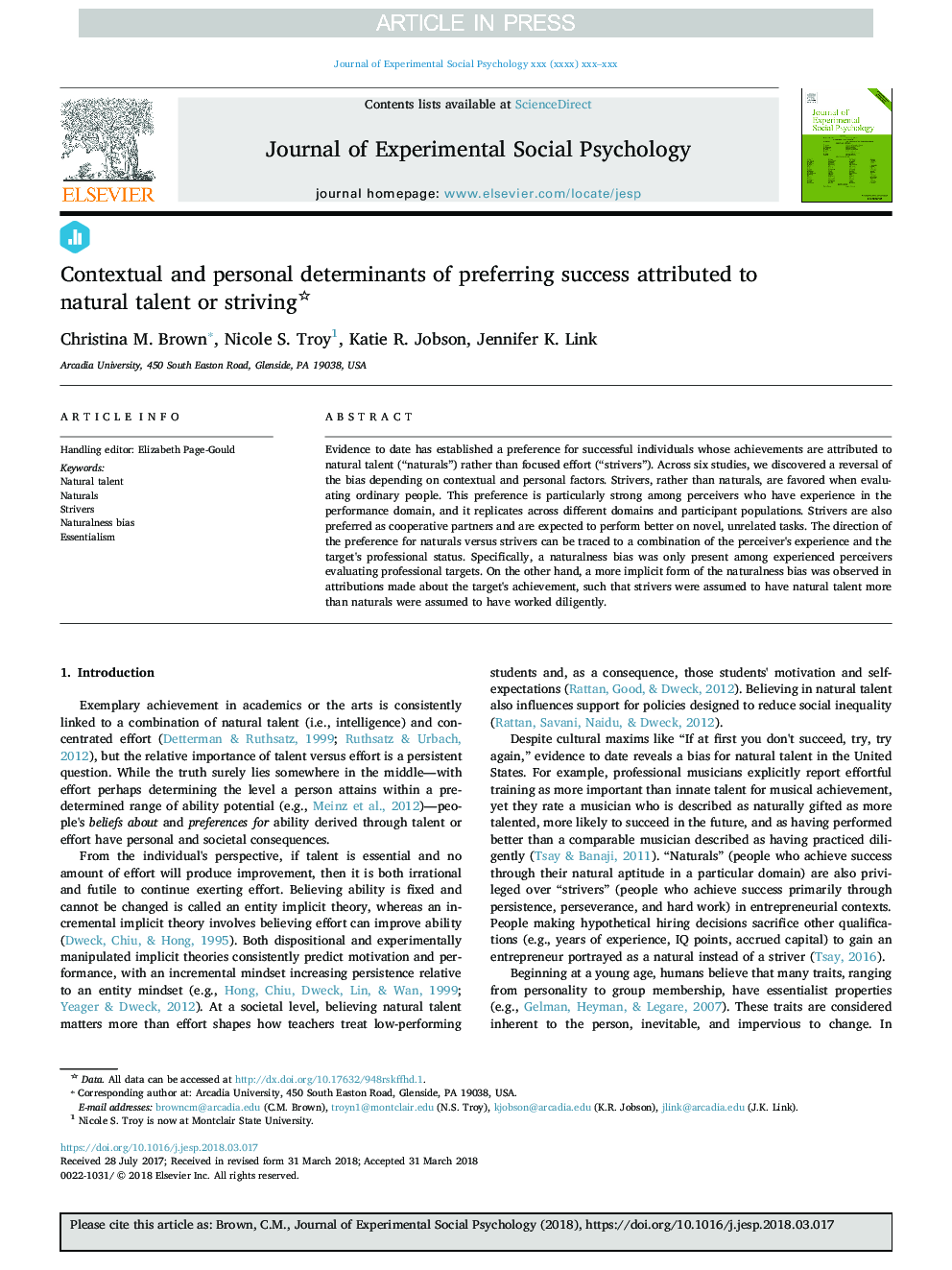| Article ID | Journal | Published Year | Pages | File Type |
|---|---|---|---|---|
| 7323978 | Journal of Experimental Social Psychology | 2018 | 14 Pages |
Abstract
Evidence to date has established a preference for successful individuals whose achievements are attributed to natural talent (“naturals”) rather than focused effort (“strivers”). Across six studies, we discovered a reversal of the bias depending on contextual and personal factors. Strivers, rather than naturals, are favored when evaluating ordinary people. This preference is particularly strong among perceivers who have experience in the performance domain, and it replicates across different domains and participant populations. Strivers are also preferred as cooperative partners and are expected to perform better on novel, unrelated tasks. The direction of the preference for naturals versus strivers can be traced to a combination of the perceiver's experience and the target's professional status. Specifically, a naturalness bias was only present among experienced perceivers evaluating professional targets. On the other hand, a more implicit form of the naturalness bias was observed in attributions made about the target's achievement, such that strivers were assumed to have natural talent more than naturals were assumed to have worked diligently.
Keywords
Related Topics
Life Sciences
Neuroscience
Behavioral Neuroscience
Authors
Christina M. Brown, Nicole S. Troy, Katie R. Jobson, Jennifer K. Link,
